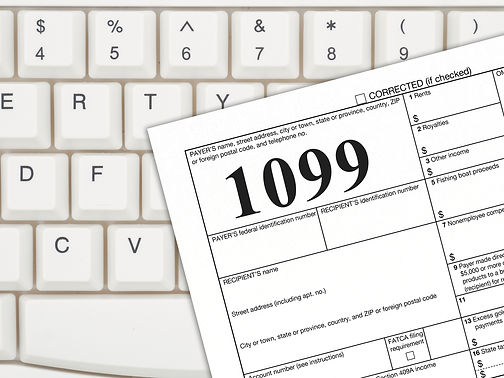
Marty Kevin Courson, Attorney at Law
San Francisco Bankruptcy Attorney
Chapter 7 and Chapter 13 Bankruptcy
Beware: Cancelled Debt is Treated as Income and You Need to Take Action

Did a creditor cancel a debt and then issue a 1099c? Did you settle a debt for less than the full value? If so, the IRS treats that “canceled debt” as income for tax purposes. But the good news is that taxation on this “income” can usually be avoided if you are eligible for the “insolvency” or “other” exclusion.
For instance, a person who has had debt canceled often owes more money to creditors than their assets are worth. If so, they are considered insolvent under the tax code and that income is not taxable. Other examples I’ve seen include clients who previously filed a bankruptcy case and the debt "canceled" was already discharged.
To claim the exclusion, a taxpayer has to file a special form, claiming the “income” as excluded. This is IRS Form 982 and is filed with the income tax return.
Sometimes, clients never received the 1099c from the creditor and did not know about the cancellation of debt when they prepared their tax returns. But the IRS sure did! Later, the IRS sends a dense letter explaining the issue and letting the client know that there will be an additional assessment of taxes unless the client files the correct form, etc. But here is what I have noticed over the years: many clients just endure the IRS’s assessment of additional taxes because they either did not read or simply did not understand the fine print in the IRS’s letter; they assume the assessment is correct and labor under an unnecessary tax bill. They are afraid of the costs of hiring someone to fix the problem so they sadly pay a larger one instead.
If this rings a bell and has happened to you, do not lose hope because you might be eligible for a refund of any overpaid taxes if you amend your prior return and include the correct form to claim the exclusion.
Most of the canceled debt income issues I have encountered have to do with credit card debts. A client might have a $5,000 credit card debt cancelled that creates $1,000 or more in taxation on this income – all of which could have been avoided!
However, I once had a client with an extreme case where he went to a tax preparation service with a post foreclosure 1099 that showed some $300,000 of debt canceled on a rental/investment property he formerly owned. An incompetent tax preparer wrongly informed him that he now owes taxes on the $300,000 as if it were income without ever addressing whether he satisfies one of the exclusions I mentioned earlier. Client had a $100,000 plus tax bill! He paid some $10,000 or so of this tax bill before he came to me for a bankruptcy consult. I happened to notice the problem and sent him to a competent CPA to review and fix the problem. Since it was the big tax bill that was driving him to consult with a bankruptcy attorney in the first place, he was able to avoid bankruptcy altogether.
For more information, see IRS Publication 4681 on Canceled Debts, Foreclosures, Repossessions, and Abandonments, and be sure to file Form 982 as appropriate. Or better yet, see a competent tax professional such as a Certified Public Accountant (CPA) or an Enrolled Agent (EA).
However, if you are on the hook for back taxes and would like to explore whether that tax liability may be discharged in a bankruptcy case, then call Attorney Marty K. Courson at 415-433-3100 to schedule a consultation.
By: Marty Courson